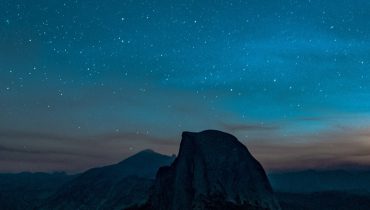Continued social distancing will limit recovery in beauty advertising to 1.7% in 2021
ZENITH Business Intelligence – Beauty and Personal Luxury
- Growth in beauty and personal luxury advertising will remain below market average in 2021 and 2022
- Digital advertising spend to be 19% higher in 2022 than in 2019
- France and India to lead recovery in 2021 and 2022
Decreased consumer demand for cosmetics and fragrances amid continued social distancing will restrain the recovery in beauty and personal luxury advertising to 1.7% in 2021, according to Zenith’s Business Intelligence – Beauty and Personal Luxury report, published today. This is below the 4.4% growth rate for total adspend in the 11 key markets included in the report*. Beauty adspend will total US$7.5bn across these markets in 2021, and then rise to US$7.7bn in 2022, growing by 2.6%, compared to 4.5% for the market as a whole.
Beauty and personal luxury adspend fell roughly in line with the market in 2020. The sharp drop in spending on cosmetics and fragrances as people stopped meeting in person was mitigated by continued demand for both hair and skin care. With hairdressers and salons harder to reach, consumers took hair care into their own hands at home. Skin care, meanwhile, benefited from the heightened desire for health-enhancing products during the pandemic.
During the recovery, though, overall demand for beauty will not change much as consumers remain reluctant to return to their pre-pandemic habits, reducing sales of cosmetics and fragrances in particular. Most beauty and personal luxury brands will not raise budgets substantially, and will be more likely to redeploy spending from underperforming channels instead.
Better environments and ecommerce help digital compensate for declining reach of magazines and TV
Beauty and personal luxury brands spend much more of their budgets on magazines and TV than the average brand. Beauty, the quintessential category of appearance, thrives on its ability to create emotional connections through imagery in a high-quality environment. Zenith estimates that in 2020 beauty brands spent 18.3% of their budgets on magazines advertising, 4.3 times more than the average brand, and 42.2% on television, 1.6 times more than average. But while the effective reach of traditional media declines, consumers are turning to digital and social platforms in increasing numbers.
Globally, beauty and personal luxury brands have been relatively slow to adopt digital advertising, spending 34.1% of their budgets digitally in 2020, compared to 53.1% for the market as a whole. This is a result of the historic lack of premium digital environments that support the high-quality brand imagery that beauty and personal luxury brands need to convey. It is also due to the difficulty the beauty industry has had adapting to ecommerce, because consumers feel the need to sample and try on beauty products in person before committing to a specific product. According to Euromonitor International, 11.8% of beauty and personal luxury sales were through ecommerce in 2019, compared to 13.2% for the market as a whole.
However, technologies like video-on-demand and connected TV, and social platforms like Instagram and TikTok, are creating new premium environments that showcase beauty and personal luxury brands effectively. Brands have also greatly stepped up investment in their ecommerce offerings since the start of the pandemic as a matter of necessity, as bricks-and-mortar retail sales shrank. Digital channels are therefore becoming more valuable for both brand and performance advertising.
In Australia, as more and more interactions moved online in 2020, we saw the use of cosmetics decline, with 52% using cosmetics less than before the pandemic began, according to results from a ZenPoll conducted last week**. And while skin care remains of high importance, half of Australians have simplified their skin care routine and are investing more in their own self-care.
Zenith Australia’s Head of Strategic Insights, Kim Xavier, said: “Although many people had to resort to purchasing cosmetics and skin care products online through lockdown periods, the in-store experience of purchasing these products is still very important. While 55% are more likely to research beauty products online, only one in three are purchasing more of their beauty products online.
“This signals an opportunity for beauty brands to continue not just to accelerate their ecommerce strategies, but actually have a dual strategy focused on in-store engagement, while also driving greater innovation in online experiences through new technologies.”
Zenith estimates that the global beauty category increased its spending on digital advertising 2.8% in 2020, despite the pandemic. This was twice the 1.4% growth rate of digital advertising across all categories, as beauty and personal luxury brands began to compensate for previous underinvestment. Zenith forecasts average growth of 5.9% a year in digital advertising between 2019 and 2022. Beauty and personal luxury adspend on all other media will decline over this period, by between 1.2% a year for TV and 12.4% a year for magazines.
*The eleven markets included in this report are Australia, Canada, France, Germany, India, Italy, Russia, Spain, Switzerland, the UK and the US, which between them account for 59% of total global adspend. Beauty and personal luxury is defined as the combination of four sub-categories: cosmetics, fragrances, hair care and skin care.
**Zenith Australia GenPoll, carried out 3rd February, 2021. Base n=317
For further information, please contact:
Camille Alarcon
Tel: +61 429 137 955
Email: camille.alarcon@publicisgroupe.com
About Zenith
As the ROI agency, Zenith leverages data, technology and talent to scout out new opportunities, solve complex challenges and grow clients’ businesses. The agency has more than 6,000 brilliant specialists across 95 markets – experts in communications & media planning, content, performance marketing, value optimization and data analytics. In Australia, Zenith has offices in Sydney, Melbourne and Brisbane, with over 150 staff. Zenith works with some of the world’s leading brands including Aldi, Honda, Luxottica, Reckitt Benckiser, Lite’N Easy, Kering, Lactalis, and The Walt Disney Company.



